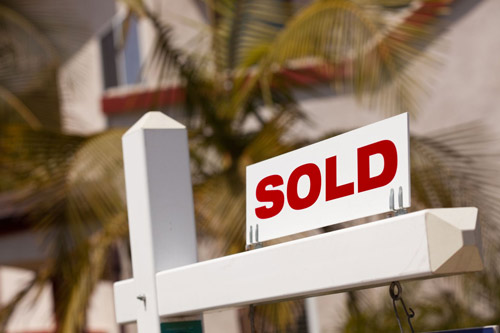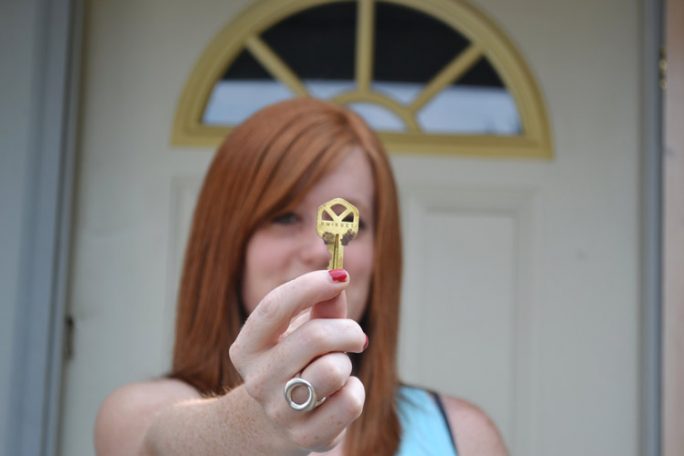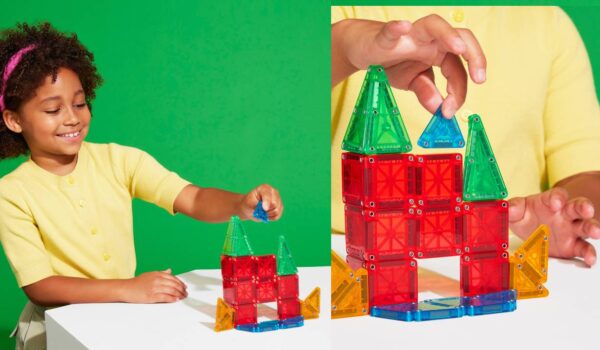It’s one of life’s biggest financial hurdles – just how on earth do you save up for a home deposit when you’re renting?
The average price for a home in Australia is now an exxy $660,000, with prices being a lot higher than this in some cities and lower in others. In order to avoid lenders mortgage insurance, it’s recommended that you have a 20 per cent deposit.
So in other words, for a home priced at $660,000 you’d need a $132,000 down payment. That’s a lot of dosh in anyone’s language, especially if you’re paying rent and bills at the same time.
Latest research from debt solutions provider Fox Symes reveals that one in three Australians now feels that owning their own home is now out of reach. This figure is almost twice as high for people in the 18 – 34 range (61 per cent).
Anouska Linz, a senior manager at State Custodians Home Loans, says whilst this can be a challenging time for people it’s important to not lose heart.
“There are ways to boost your savings whilst renting so you can get into your own home sooner,” she says. “It just takes planning and commitment.”
Here then are seven handy tips to get you started.
1. Create a specific home deposit account
Firstly work out how much you need for a deposit advises Anouska. “This also should include stamp duty, solicitor costs, pest and building inspections, and moving costs.” Work towards this goal by creating a specific high interest home deposit bank account. Create other separate accounts for your rent and bills, entertainment etc. Otherwise it can be difficult to keep track of the progress of your home deposit if all your money is in one account.
2. Clean up your finances
Next get your finances organised. “Ensure that all your bills and commitments are paid on time so you reduce the risk of any surprise defaults,” Anouska says. “A lender will generally get access to some of your savings or credit card statements during the process also which will show if items have been paid regularly and on time. Any history of late payments will affect your ability to borrow.”
3. Get rid of unnecessary expenses
If you are serious about buckling down and saving for a sufficient deposit soon, then you’ll need to start slashing unnecessary expenses. “Spending on discretionary items will form part of the loan assessment and will affect how much you can borrow, so keep these costs low,” advises Anouska.
For example, day-to-day expenses such as your morning coffee or café lunch could be reduced or stopped altogether. Consider changing phone plans, particularly if you never go near the monthly limit. And take a good look at your monthly bank statements. You may still be paying memberships and donations you have totally forgotten about.
4. Negotiate your rent
Rent is probably your biggest expense, so why not try and reduce it? If you are planning to stay at that property for a while, speak with your landlord about reducing the rent if you take on a longer lease. Depending on the area you live in, you may find that the landlord is eager to secure a long term tenant.
5. Move back home
If you’re currently living by yourself, you may be struggling to cover expenses and save at the same time. Moving back home with your family can help reduce your expenses significantly. While it may be difficult to suddenly be sharing a bathroom with your dad again, just keep your eye on the prize!
6. House sitting
House sitting is a great way to live in different areas for almost nothing. Although you may be required to do a little housework and maintain the property, you will save hundreds on rent each month that will go directly towards your deposit. Also, as you will be moving around in different suburbs, it can give you an idea about what type of area you would like to buy in. Check out what on offer at aussiehousesitters.com.au.
7. Focus on mini goals
Whilst you need to have an idea of your deposit, try not to get fixated on the total amount. It can feel a little disheartening at times and hard to stay motivated.
Instead set yourself mini goals and reward yourself to help keep you on track. Decide how much you need to save each month, note down on a calendar the amount you will have saved in three, six and nine months. You can check back in and work out if it is still on track or whether you are ahead of schedule. Rewarding yourself is also important. For example, every time you save a thousand dollars, you could treat yourself to a dinner out.
Remember, saving for a home deposit is a process and won’t happen overnight. However anything is possible with the right amount of determination.
By Fleur Michell








